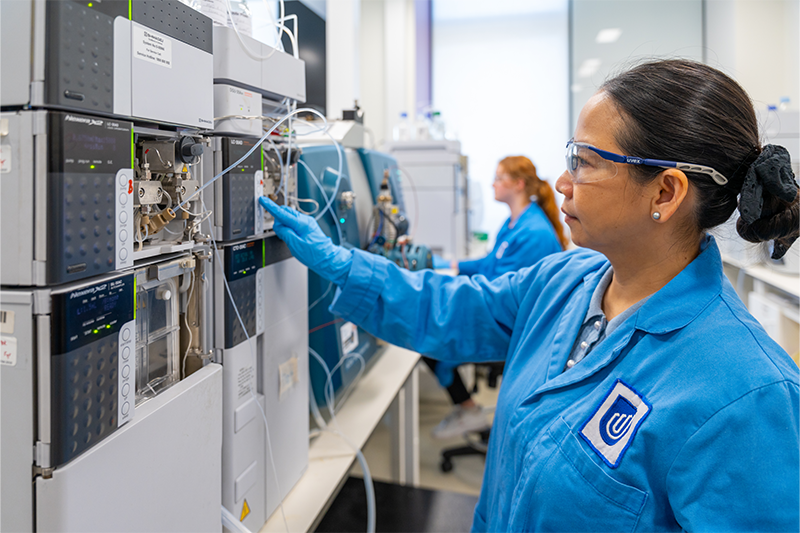The challenge
Acute myeloid leukaemia (AML) is a formidable blood cancer, claiming the lives of roughly 70% of adults under 60 and an alarming 90% of elderly patients. This dire prognosis is attributed, in part, to the high rates of cancer relapse and drug resistance that continue to thwart existing treatment modalities.
The pro-survival signalling enzyme called ‘sphingosine kinase 1’ (SPHK1) is targeted using a SPHK1 inhibitor known as ‘MP8’. MP8 has demonstrated an ability to mitigate cancer relapse by sensitising certain cells to chemotherapy. However, despite these encouraging results, the efficacy and clinical translation potential of MP8 are hindered by its low solubility, limited bioavailability, and sub-optimal biodistribution.
Our Solution
To address this obstacle, CPI Co-Director Clive Prestidge and his team of researchers have utilised sophisticated nanomedicine techniques to create a refined nanomedicine.
"Our innovation has shown increased effectiveness against AML cells, thanks to enhanced delivery of MP8 to bone marrow, where cancer relapse-driving cells live," Prof Prestige says.

Caption: CPI's nanomedicine innovation has shown increased effectiveness against AML cells, thanks to enhanced delivery of MP8 to bone marrow, where cancer relapse-driving cells live.
"Preliminary studies of a combination therapy involving MP8-nanomedicine with chemotherapy or targeted medication reveal a synergistic effect against human AML cells.
"These findings suggest that MP8-nanomedicine holds promise as a potential new effective therapy for managing AML."
This groundbreaking work from UniSA has the potential to fast-track the translation of SPHK1 inhibition through newly developed MP8-nanomedicine into clinical trials for AML therapy.
It also holds promise for enhanced patient survival.




